Intro
Understanding the impact of governance on a nation’s development is crucial. It’s vital for policymakers and every citizen who helps shape a country’s future.
The systems of dictatorship and democracy have long been subjected to extensive debate. But it’s not just about which one is superior; it’s about how each influences development.
This blog post will look at how dictatorship and democracy contribute to development. We will also compare them.
Understanding the Concept of Dictatorship

Let’s dive deep into the concept of dictatorship. It’s a form of governance where power is concentrated in the hands of one individual or a group. This absolute power is only sometimes from the will of the people. It also isn’t restrained by a constitution. This sets the stage for an environment of unchecked authority. So, what does life in a dictatorship look like? It can be seen by heavy censorship. There are limited personal freedoms and often blatant disregard for human rights.
Sounds grim. But it’s not all bleak. Dictatorships also have their unique set of strengths. Quick decision-making, for instance, is a hallmark of dictatorships. Without consensus or debate, a dictatorship can set plans into motion. This speed can bring fast growth. More democratic nations have more bureaucracy. They can only sometimes achieve this.
The image of a dictatorship can seem stark and oppressive. But, it’s essential to acknowledge its potential for swift progress and change. After all, understanding is the first step to critical evaluation. Only by grasping both the good and bad of dictatorships can we see the complexities of governance.
The Allure of Democracy

Dictatorship has concentrated power. In contrast, democracy is an attractive model. It rests on the will of the people. Its pillars are free and fair elections. They also include total freedom of speech and equal rights for all citizens. The magic of democracy lies in its inclusivity. It welcomes diverse voices, embraces varied views, and values freedom.
A democracy’s decision-making is slower than a dictatorship’s. But, its decisions carry its citizens’ will. Every policy is crafted, every law is passed, and every direction is taken to reflect the needs and dreams of the people. In essence, a democratic government serves as a mirror to the society it represents.
Even with red tape, democracy’s debates help make policies more inclusive. This slow but steady approach ensures that decisions aren’t impulsive. They are well thought out and represent the needs and desires of the population.
Democracy thrives on the principle of ‘power to the people’. It may be an arduous and intricate dance of diverse opinions, but therein lies its beauty. The system values each voice and ensures no one is left unheard. This, in its essence, is the allure of democracy—a symphony of voices working together for a common goal. It shows the strength of unity. It also shows the power of freedom and the pull of shared decision-making.
The Path to Development: Dictatorship Versus Democracy

We delve into how dictatorship and democracy impact development. It’s like navigating a maze of factors. Dictatorships can make decisions and act fast. They often drive swift economic growth. But this fast progress has a downside. It hides the lost personal freedoms and societal equity. But democracies might not be the hare in this race. They are the tortoise from the fable—slow, steady, and eventually win the sustainable growth race. The approach may be slow and methodical.
But, the outcomes reflect everyone’s needs. It’s like pitting efficiency against inclusivity, a challenging puzzle, indeed. The aim is not to pick the best but to get the essence of each. It’s about how they shape a nation’s path. It’s about seeing the pros and cons of each system. And finding a balance between efficiency and inclusivity. After all, the main goal is to foster a society. In this society, development does not come at the cost of freedom. Progress doesn’t ignore the voices of the people.
Dictatorship and Economic Growth: A Deeper Insight

It’s intriguing to note how the gears of economic growth can turn under a dictatorship. This fast acceleration is because the regime can enact policies without red tape. Decisions are made, plans are set into motion, and changes are seen – all in the blink of an eye. Yet, beneath this impressive façade of rapid growth lies the sad truth of inequality. The growth under dictatorships often doesn’t trickle down to the masses. Instead, it amasses in the hands of the ruling elite, leading to a stark wealth disparity.
But the repercussions don’t stop there. The unchecked power inherent in dictatorships can give birth to economic mismanagement. Without the guiding hand of checks and balances, the economy can become as volatile as a ship in a storm. In the end, this instability and unpredictability can cast a shadow. It can dim the impressive growth. This analysis shows how dictatorships can boost an economy. But they also reveal the risks of unchecked authority and uneven wealth. Economic growth becomes a complex web of highs and lows in a dictatorship.
Democracy’s Contribution to Sustainable Development

Let’s delve into the heart of how democracy fuels sustainable development. It’s not just about achieving wealth. It’s about how this wealth spreads through society. It ensures that no one is left behind. Democracy is beautiful because it’s designed to include everyone. This leads to policies that reflect every citizen’s needs. These considered policies may take longer to install. But they have broad acceptance and support from society. They lay a firm base for sustainable development.
Democracy is also crucial to the economy. It also fosters social development. Robust protection of rights ensures a fair playing field. It encourages participation and inclusivity. It enables an environment where ideas can take flight. Innovation can flourish, setting the stage for intellectual, cultural, and societal progress.
Sustainable development is a grand orchestra. Democracy conducts the symphony. It ensures every voice is heard. Every idea is considered. And every person is valued. It provides fertile ground for sustainable development seeds. They can take root and grow there. This ground is intertwined with the ideals of freedom, equality, and shared decision-making. The road to development under democracy seems slow and winding. But, it is a journey to lasting growth that benefits all, not just a privileged few. It’s a path. On it, growth and equity go hand in hand. They pave the way for a more inclusive and sustainable world.
The Role of International Relations and Global Politics

Interactions on the world stage carry much weight. They dictate a country’s path. Dictatorships often face diplomatic resistance. They may also face exclusion and sanctions. These acts of international rebuke can hinder the country’s development pathway. Democracies, in contrast, generally enjoy a more favorable global standing. This perception often opens doors to foreign investments and aid. It helps a nation’s development efforts.
But this doesn’t make a solid shield for democracies. They are still vulnerable to global politics. Diplomatic disputes, geopolitics, and conflicting interests can and do harm democratic nations. Like governance machinery, international relations are also full of complex power and politics. This intricate dance on the global stage adds another layer of complexity. It’s on top of the already tangled relationship between governance and development.
The Road Ahead: Lessons from the Past

We must look back at the past as we head towards the future. We should learn from the wins and losses that history offers. Our look at dictatorships and democracies has shown one fact. No type of government is foolproof. Each carries its unique set of strengths and vulnerabilities. Dictatorships offer swift decision-making and fast growth. Democracies have inclusive and deliberate decision-making. Both systems have their merits.
Yet, they also bear the weight of their shortcomings. For dictatorships, unchecked authority can lead to human rights abuses and wealth disparity. In contrast, democracies can struggle with slow decision-making. They are also prone to bureaucratic red tape.
Yet, acknowledging these challenges. This is how we can find a more balanced path for development. It harnesses the efficiency of dictatorships. It also has the inclusivity of democracies. And the freedom that they foster. It’s not about choosing one over the other. It’s about understanding the complexities of each system. They can better serve the goal of comprehensive, sustainable development.
This endeavor requires us to use history as our guide. We must learn from the successes and failures of both systems. The main goal is to build a fairer and more inclusive society. It should not sacrifice freedom for progress or efficiency for equality. The road ahead has many challenges. But, as we move forward, let’s remember that learning, understanding, and evolving drive progress.



